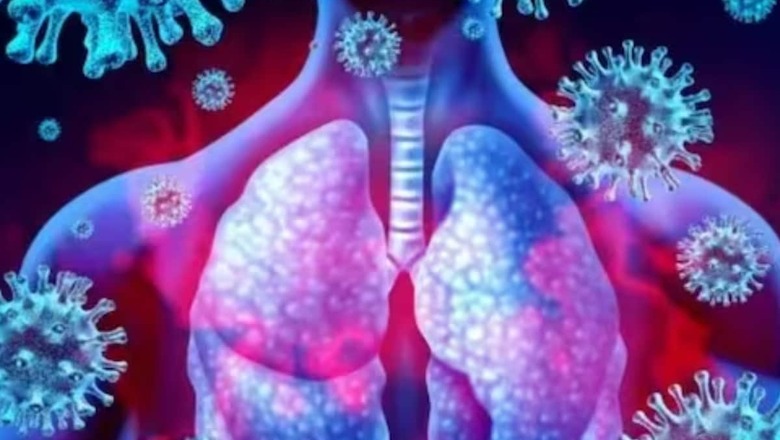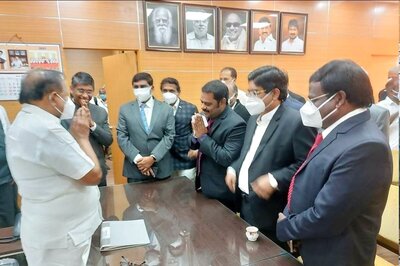
views
Winter’s sharp chill brings with it more than just beautiful scenery and joyous celebrations; it also leads to an increase in respiratory problems. Pneumonia is one of the many wintertime health issues that poses a serious risk. It is critical to take preventative measures for pneumonia when the temperature drops and the risk of respiratory infections rises.
Understanding Pneumonia: The Winter Menace
The most common causes of pneumonia, an inflammatory lung disease that affects the air sacs, are bacteria, fungi, or viruses. People are more vulnerable to respiratory ailments during the winter months because of the conditions that facilitate the spread of these pathogens. It is imperative to take both home and medical measures to counter this seasonal threat.
Domestic Measures: Building a Fortress Against Pneumonia
- Hygiene as a ShieldKeeping oneself clean is the first line of defence. The risk of catching the viruses that cause pneumonia can be greatly decreased by practicing regular hand washing and sanitization.
- Proper VentilationThe importance of proper ventilation cannot be overstated, as it plays a crucial role in preventing the accumulation of airborne pathogens. Make sure your living area has adequate ventilation to lower the amount of respiratory irritants present.
- Winter Wardrobe AdviceDressing for the weather is a protective measure as much as a comfort one. When exposed to chilly winds, covering your mouth and nose helps keep cold air from entering your lungs, lowering your risk of developing respiratory infections.
- Nutrition for ImmunitySustaining a strong immune system requires a diet high in vitamins and minerals and well-balanced. Incorporate fruits, vegetables, and foods that strengthen the immune system to fight against infections.
Medical Measures: Expert Insights on Pneumonia Prevention
Dr Devesh Kumar Singh, chairman of Noida International Institute of Medical Sciences and Noida International University, emphasises the importance of early detention and vaccination, “Two strategies are needed to prevent pneumonia. Initially, it’s imperative to identify respiratory symptoms as soon as possible. Seek medical attention right away if you have a persistent cough, shortness of breath, or chest pain. Second, immunisation is an effective tool. Vaccinations against pneumonia and the flu each year can greatly lower the risk of respiratory infections, particularly in susceptible groups like the elderly and people with long-term medical conditions.”
Dr. Khushboo Pilania Agrawal, Senior Radiologist, specialises in chest and musculoskeletal radiology, and founder of Izen Imaging & Interventions, highlights the role of preventive medications, “Preventive medications may be prescribed in addition to vaccinations for individuals who are more susceptible to pneumonia. Depending on the particular risk factors, these could include antiviral or antibiotic medications. To ascertain the best preventive measures based on specific health conditions, it is imperative to speak with a healthcare professional.”
Accurate Identification and Typical Errors: Handling the Wintertime Health Labyrinth
Early detection and recognition of respiratory challenges are critical for successful intervention. Red flags such as a persistent cough, fever, chest pain, and difficulty breathing should not be disregarded. When respiratory infections are treated early on, they can avoid developing into more serious illnesses like pneumonia.
But in all the winter bliss, people tend to do things incorrectly, which can lead to respiratory problems. There are two typical pitfalls to be aware of:
- Ignoring SymptomsUntil the illness gets worse, a lot of people ignore seeking medical attention for respiratory symptoms, writing them off as simple colds. In order to control respiratory infections and avoid complications, early intervention is essential.
- Supervision of Indoor Air QualityAlthough outdoor air quality is frequently a concern, indoor air quality is just as significant. Respiratory infections can spread as a result of improper ventilation and disregard for indoor space cleanliness.
It is critical to adopt a comprehensive strategy for respiratory health as winter approaches. Home remedies combined with professional medical advice can build a stronghold against pneumonia. Early symptom detection, prompt vaccination, and avoiding common mistakes all help to ensure a winter free from respiratory complications.
“Our respiratory health is a precious asset, and proactive steps can go a long way in preserving it,” stated Dr Singh.
“Prevention is the cornerstone of respiratory health,” continues Dr Agrawal. We can guarantee a happy and healthful winter by implementing a few easy but effective steps.”
The key to a season of awareness, preventive measures, and expert guidance in the face of respiratory challenges brought on by winter.

















Comments
0 comment